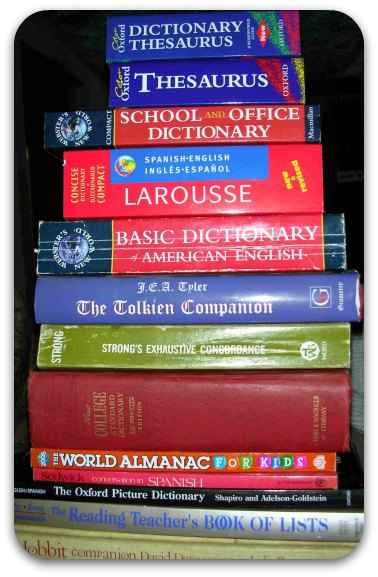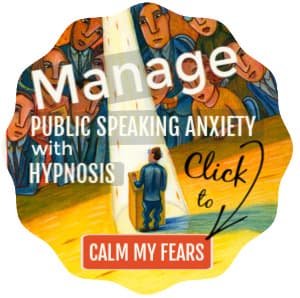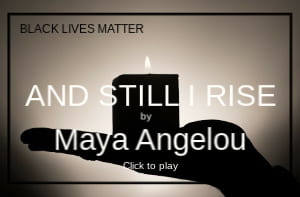How to increase your word power
How to increase your word power to build an extensive vocabulary is an enthralling life long journey.
There are always more words to be
collected, tasted, tried and tested. Some of your acquisitions will be
become favorites. Others will be reserved for special occasions. But
what is certain is if you decide to actively seek out new words, you will discover the delight of diversity and your
spoken, as well as written, speech will improve.
The benefits of a bigger vocabulary
The more word choices you have in your vocabulary, the more likely you will
communicate with clarity. The words you choose to use will have subtlety and
depth, conveying more precisely and efficiently what it is you want to
say.
Page quick links
Ten "how to increase your word power" activities or suggestions, with links to excellent ongoing resources
Read the dictionary or thesaurus
This suggestion used to be greeted
with hoots of derision by some of my students. Reading the dictionary
was so "not cool"! However, despite what a handful of teenaged mockers
thought, it remains a favorite pastime.
Try it now. Grab a dictionary, let it flip open and read.
Just one dictionary entry word will give you so much information.
You'll get where the word came from, (its history or etymology) how to say it, (a phonic pronunciation guide) and the type of word it is, (noun, adjective, verb...), plus its varying meanings. You may even be given other forms of the word or examples of its use.
The Thesaurus too, is a wonderful tool for increasing your vocabulary. It's a vast treasure trove of synonyms, (words sharing a similar or the same meaning), beloved by writers all over the world.
You may not actually need multiple words for one idea or thing but it is so much fun to have them!
They give variety; new layers of nuance to a
plain vocabulary.
So you want an alternative for the word "absurdity"?
No problem.
In my trusty Thesaurus, a 1959 Roget hardback edition I inherited from my father,
there are so many it's hard to choose between them. They're that good,
you'll want the lot.
Here's a tempting sample:
"folly, nonsense, quibble, paradox, jargon, gibberish, rigmarole, rant, bombast, twaddle, claptrap, flapdoodle, verbiage, balderdash, bosh, tosh, tripe, bilge, flummery..."
If you haven't already got a good dictionary or thesaurus, you'll need one of each. There are free online versions and I use them, but I would never retire my hard copies.
Crossword puzzles

Most newspapers and many magazines publish crosswords and other forms
of word games. These are great vocabulary stretchers: brilliant for stimulating the brain to think
laterally to get the answers. If you've never done any before, give them
a go.
Often they're graded for difficulty. As a novice or first
timer, try the easier ones to start with. The success you experience
will spur you on to crack the cryptics which are a great deal harder.
Soon you'll find you're competing with yourself to finish them in ever
decreasing time spans.
You'll find an enormous selection of them here from newspapers all over the world per courtesy of www.crossword-puzzles.co.uk.
Listen
Consciously collecting words from conversations around you is another excellent method of picking up vocabulary.
If you hear an unfamiliar word and can't deduce its meaning through
context clues ask for an explanation. Most people are only too happy to
give one. If possible have them write it down so you can check it
thoroughly later.
Also in the "how to increase your word power" listening category are audio or talking books, radio, film and television. Choose radio stations, shows or books to extend your knowledge. Edge yourself out of your familiar comfort zone into something a little more challenging.
Although some of what you hear may go in one ear and out the other through lack of comprehension that's not all of it. Give it some time and soon you'll realize you're understanding and enjoying more and more of what you hear.
Here's a link to www.booksshouldbefree.com to get you started. You'll find hundreds of books across all genres, many with rave reviews.
Study the history or etymology of words
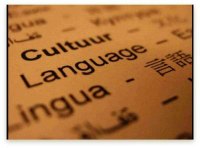
By turning yourself into a word sleuth and snooping through the history of words you'll uncover a cornucopia of strange and wonderful delights.
Because the English language is alive, vibrant and ever-changing, as new words form, older dis-used ones slough off. However throughout their various incarnations some elements remain constant. For instance, if you know what the more common Greek or Latin roots (building blocks) of words mean you'll have a better chance of working out a word's meaning.
These links will provide hours of investigative pleasure.
- www.etymonline.com is an online etymology dictionary. Use it for finding the origin of words, phrases or sayings.
- www.thoughtco.com/common-word-roots-in-english is an excellent introduction to common Greek or Latin roots, their meaning and examples of use in words.
Read good writing
Often a statement like that will result in howls of elitism and
snobbery. However if you were given a choice of cars to drive, would you
get behind the wheel of an old beat-up or slide into the leather
upholstered luxury of a beautifully designed and built machine? I know both have their place but having the freedom to choose makes all the difference!
If you really want to know how to increase your word power, you're going to have to read and learn to appreciate good writing. You deserve nothing less to support yourself on your quest.

A great
starting place is to read the best of newspapers available. You'll find
them an invaluable source of information across many topic areas
including in-depth analysis of current world and local events.
Fortunately many are available free online.
I've selected two very famous newspapers and a magazine for you to start with.
- The Guardian (www.theguardian.com/uk) is from United Kingdom.
- The New York Times (www.nytimes.com) is one of USA's leading papers.
- The New Yorker (www.newyorker.com) magazine is widely considered to publish the very best of modern short stories. It also has compelling articles on the arts and allied fields while the cartoons are in a class of their own. In short, The New Yorker is superb.
Avoid gratuitous fill and fluff
How many words are there to write about "Top Hollywood Star has Nose Job" or "Will the Baby's REAL Father Please Stand Up?"
A lot but not many different ones. The same words in the same stories come round again and again. Know that stuff for what it is. It's not bad, but we can do better with our time.
Yeah, I know. I sound like a judgmental better-than-thou snob - a prissy mouth. But when you can
have the best of writing from the best of minds why feed ourselves junk?
[Grin. ☺ Susan climbs down from soap-box.]
Broaden your interests
Read widely. Don't settle for one particular field or genre. Experiment with new ones. Try philosophy, history, current social issues, psychology, religion... Get into biographies and autobiographies.
Explore Robert Teeter's site for varying types of reading lists: fiction and non-fiction across the ages.
He's done a wonderful job of listing a huge range of titles in a useable way.
Look up unfamiliar words
Part of building your vocabulary involves actively making each new
word you meet your own. To do this accurately and efficiently, check unfamiliar
words as you find them. Yes, it does slow reading down but in
the long run, it brings you nearer to your goal: a larger vocabulary.
Looking a word up ensures you get the full picture rather than part.
If you can't check a word immediately write it down for when you do have
access to your dictionary. Be sure to try sounding it out as well as
reading about it. Use the phonic guide provided.
Use your words
Some people fear putting their words on parade. They think others will think they're "showing off", or using "big" words to belittle or deliberately confuse them. So to avoid being seen as a pretentious prat they deliberately down play their word choice.
Be aware that this can be a form of condescension. You may be making a false assumption that your listeners or readers are not going to appreciate the full scope and flexibility of your vocabulary.
You may also be making another in assuming they do not have enough nous to understand you. Until you test-drive, how do you know?
When you use your newly acquired
words appropriately they will enhance your communication. Go on, risk
it! You haven't collected all those gems to horde them in your own mind.
This is an important step in your 'how to increase your word power'
program, so start slowly to gain confidence and share.
Enjoy words
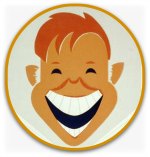
Having fun is part of increasing your word power too. For example, you could start a "word-of-the-day" game in the morning and count how many times you worked your new word into conversation by evening. Ask the people around you to play it too.
(We played this recently with "mellifluous". It means honey-sweet flowing words or sounds. By the time the day was done it rolled off our tongues with ease. The music on the radio was mellifluous. The screeching bus brakes were not mellifluous.)
But above all, savor the shape and taste of your words in your mouth. Say them softly, shout them loudly, listening to their sounds. Know your words are wonderful.
As you've just read there are many ways to build your vocabulary, choose one and get started now!
Free word games
If you've enjoyed this page you may like these word games
to develop fluency and confidence along with vocabulary. They are
tremendous fun and suitable for all ages from about ten years upward.
You can play them with small or large groups.
- Return to top of how to increase your word power
- Return to write-out-loud.com homepage
